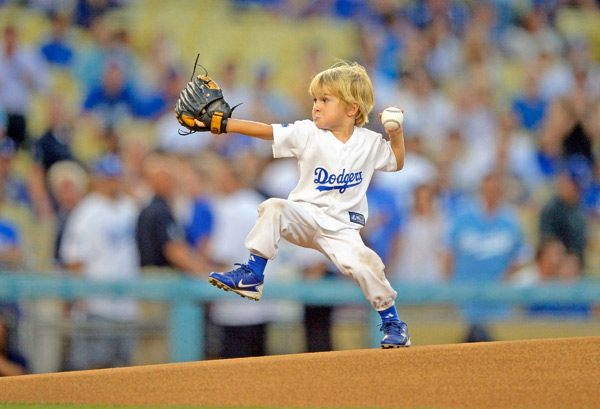
‘Take me out to the ballgame’ doesn’t exactly conjure up images of apple slices and kale chips. The more likely culprits include French fries, soda and the occasional box of Crackerjacks.
Unfortunately for children who play youth baseball, eating unhealthy food during practices and games may be contributing to weight problems, according to researchers at Wake Forest Baptist Medical Center. The study, published in the current online edition of Childhood Obesity, found that high-calorie snacks and sugar-sweetened drinks dominate the youth baseball scene.
“Though youth sports are an excellent way to promote physical activity, social interaction and positive health behaviors, the food environments are often characterized by less healthy food options with high calorie contents and lower nutrient density,” said Joseph Skelton, M.D., associate professor of pediatrics at Wake Forest Baptist and senior author of the study.
In this observational study, the research team conducted an environmental scan of foods consumed by players and family members during 12 games at a youth baseball field in northwest North Carolina. The players were boys 8 to 11 years old on six teams.
The researchers found that most snacks were high-calorie food items, including French fries, candy and cookies and most beverages were sugar-sweetened. Nearly 90 percent of food and beverage items purchased were from the concession stand.
“Team sports like baseball are still very important for children’s activity and development,” said Megan Irby, M.S, co-author and research program manager of Brenner FIT, a multidisciplinary pediatric obesity program at Wake Forest Baptist.
“But as seen in this study, games and practices can be upwards of two to three nights a week, and many children participate on multiple sports teams each year. Parents should plan ahead for these busy times and even advocate in their local sports leagues for policies that address snacks and drinks.”
This research was the first step in exploring the question of whether children and families attending youth sporting events may be increasing their risk for being overweight or obese as a result of chronic unhealthy food behaviors associated with sports participation, Skelton said. Contrary to the intent of youth sports, these findings indicate that children may be leaving the ball field having consumed more calories than they expended.
“Despite the benefits of participating in sports, the increased exposure to unhealthy foods and disruption of meal times may increase children’s risk for poor nutritional habits that can contribute to weight management issues,” Skelton said.
A limitation of the study was the ability to accurately document all foods consumed at the ballpark without being intrusive.
The study done by Wake Forest Baptist Medical Center.